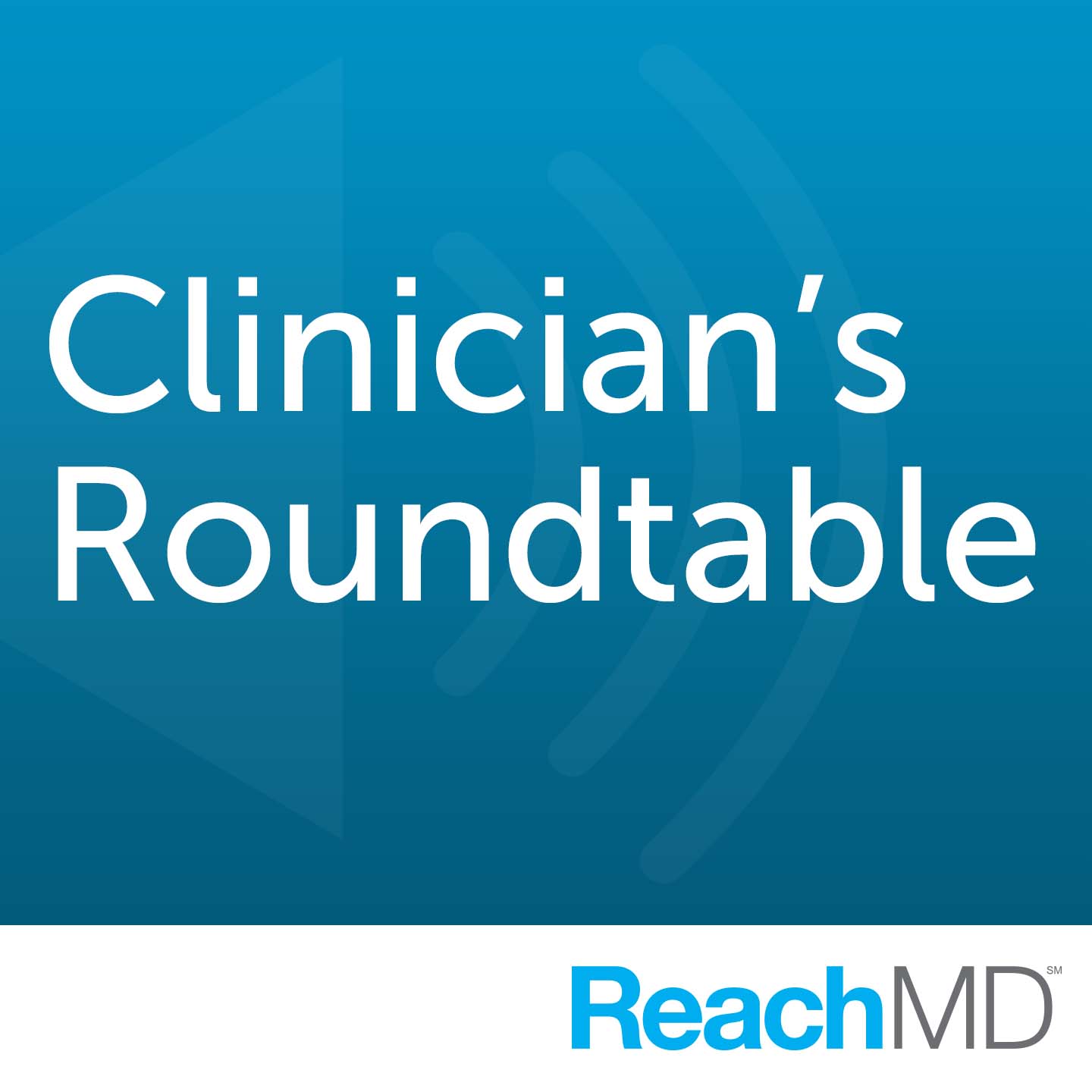

Clinician's Roundtable
ReachMD
Tune in to interviews with the top thought leaders in medicine exploring the clinical and professional issues that are foremost in the minds of the medical community. Join us at the Clinician's Roundtable for discussions on a vast range of topics that every medical professional should know about.
Episodes
Mentioned books

Sep 22, 2008 • 0sec
A New Outreach Program to Find College Students at Risk for Suicide
Host: Cathleen Margolin, PhD
Guest: Steven Garlow, MD, PhD
Host Dr. Cathleen Margolin interviews Dr. Steven Garlow of Emory University School of Medicine about his recently published article in the Journal of American College Health. Dr. Garlow and colleagues studied an interactive web-based method of outreach to college students at risk for suicide.

Sep 22, 2008 • 0sec
Special Populations At Risk for Suicide: Young Adults and Physicians
Host: Cathleen Margolin, PhD
Guest: Steven Garlow, MD, PhD
Dr. Steven Garlow of the Department of Psychiatry and Behavioral Sciences at Emory University School of Medicine joins host, Dr. Cathleen Margolin, to talk about the challenges of finding young adults who are at risk for suicide. He also discusses the elevated risk of suicide among physicians.

Sep 22, 2008 • 0sec
Assessing Suicide Risk in Young Adults
Host: Cathleen Margolin, PhD
Guest: Steven Garlow, MD, PhD
What are the key warning signs of a potential suicide in young adults? How can we, as clinicians, act to prevent these devastating tragedies from occurring? Dr. Steven Garlow, assistant professor of psychiatry at Emory University School of Medicine, discusses suicide prevention for the post-high school population with host Dr. Cathleen Margolin.

Sep 22, 2008 • 0sec
Employment Agreements for Physician Assistants
Host: Lisa Dandrea Lenell, PA-C, MPAS, MBA
Guest: Michele Roth-Kauffman, JD, PA-C
Michele Roth-Kauffman, a physician assistant and attorney, discusses the differences between employing a physician assistant with and without written contract. In addition, Ms. Roth-Kauffman identifies the key terms of a written employment agreement, such as salary, employment term, liability insurance and scope of practice. Ms. Roth-Kauffman highlights those terms of employment which should be clearly specified if the employer choses to employ the physician assistant under an agreement.

Sep 22, 2008 • 0sec
Malpractice Insurance Options for Your Physician Assistant
Host: Lisa Dandrea Lenell, PA-C, MPAS, MBA
Guest: Michele Roth-Kauffman, JD, PA-C
Host Lisa D'Andrea welcomes guest Michele Roth-Kauffman, a physician assistant and an attorney. Ms. Roth-Kauffman discusses the various options available to practice owners for providing malpractice coverage to physician assistants working in the practice. Ms. Roth-Kauffman also advises practice owners and physician assistants about the type and scope of coverage required for physician assistants working part-time or for two independent medical practices.

Sep 22, 2008 • 0sec
Malpractice Coverage for Physician Assistants
Host: Lisa Dandrea Lenell, PA-C, MPAS, MBA
Guest: Michele Roth-Kauffman, JD, PA-C
Host Lisa D'Andrea welcomes Michele Roth-Kauffman, chair of the physician assistant department at Gannon University in Erie, Pennsylvania, and an attorney, to discuss coverage options available to the physician assistants, the limitations of such coverage, and how the physician can enhance his/her own coverage to afford greater protection against malpractice claims. Ms. Roth-Kauffman also shares other steps you can take to reduce malpractice exposure.

Sep 19, 2008 • 0sec
Current Surgical and Non-Surgical Techniques in Articular Cartilage Repair
Host: Sherwin Ho, MD
Guest: Riley J. Williams III, MD
When articular cartilage is damaged orthopedic intervention is required. Dr. Riley Williams, associate professor of orthopedic surgery at Weill Medical College, director of the institute for cartilage repair at the Hospital for Special Surgery, and a leading expert on cartilage repair, joins host Dr. Sherwin Ho to talk about current surgical and non-surgical techniques for repairing tissue. Find out also what Dr. Williams is learning from clinical trials on an updated version of an ACI procedure.

Sep 19, 2008 • 0sec
Unscrambling the Egg Myth
Guest: Stephen Kritchevsky, PhD
For much of the past 40 years, doctors have been telling patients vulnerable to heart disease to avoid eating eggs because of a mistaken belief that cholesterol-rich eggs increased one's risk of coronary heart disease. Guest Dr. Stephen B. Kritchevsky, director of the Claude D. Pepper Older Americans Independence Center supported by the National Institute on Aging, reviews the scientific research concerning cardiovascular disease and egg consumption with host Dr. Larry Kaskel.

Sep 19, 2008 • 0sec
Medical Depots for America's Truck Drivers
Host: Lisa Dandrea Lenell, PA-C, MPAS, MBA
Guest: John McElligott, MD,FACP, MPH
Truck drivers live to an average age of 55, and thirty drivers are found dead each day in their trucks according to Dr. John McElligott, medical director of Professional Drivers Medical Depots. Dr. McElligott, explains to host Lisa D'Andrea how these statistics fueled his desire to provide convenient and affordable healthcare to the thousands of drivers in America. Dr. McElligott describe the model of the medical clinics, which are located at truck stops off major interstates highways. Dr. McElligott indicates that utilizing physician assistants to provide care makes the trucking clinics financially viable. Dr. McElligott also describes other services provided by the clinics such as taking care of a driver's truck, flexible appointments, and parking for these large vehicles, which are necessary in order to make 'healthcare' accessible for truck drivers.

Sep 17, 2008 • 0sec
Pharma and Biotech Industries Pursue Treatments for Cardiac Inflammation
Host: Bruce Japsen
Guest: Lawrence Cohen, PhD
A treatment for atherosclerosis and the chronic inflammation in arterial blood vessels could be entering critical clinical trial stages that may result in a novel new treatment. Dr. Lawrence Cohen, president and chief executive officer of VIA Pharmaceuticals lays out for host Chicago Tribune's Bruce Japsen the landscape of large pharmaceutical companies as well as smaller biotech companies that are making progress in bringing these treatments through the clinical trial process. They are closer than you might think.


